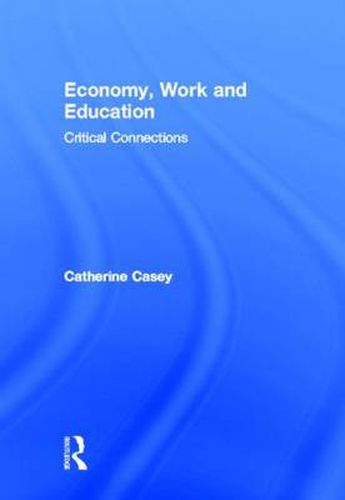Readings Newsletter
Become a Readings Member to make your shopping experience even easier.
Sign in or sign up for free!
You’re not far away from qualifying for FREE standard shipping within Australia
You’ve qualified for FREE standard shipping within Australia
The cart is loading…






Economy, Work and Education: Critical Connections addresses effects of neoliberal capitalism in particular regard to work and education. The book elaborates key aspects and problems of generalized policy models of knowledge-based economies and learning societies in contexts of liberalized firm action, accelerated competitiveness and labor market flexibility. It discusses limits and paradoxes of higher skilled, knowledge-based economies which include significant disparities in labor market absorption of higher level skills, a deterioration of qualitative conditions of work and a re-subordination of workers. This volume provides a research-intensive crossing of these fields to contribute a closer disciplinary and scholarly dialogue between interested thinkers across fields who too often must labor and converse apart. It offers the vantage point afforded by traversing old boundaries and exploring concerns shared by many scholars and researchers in international circles in pursuit of social and cultural innovation in the governance of work and education and advancing wider social debate
$9.00 standard shipping within Australia
FREE standard shipping within Australia for orders over $100.00
Express & International shipping calculated at checkout
Economy, Work and Education: Critical Connections addresses effects of neoliberal capitalism in particular regard to work and education. The book elaborates key aspects and problems of generalized policy models of knowledge-based economies and learning societies in contexts of liberalized firm action, accelerated competitiveness and labor market flexibility. It discusses limits and paradoxes of higher skilled, knowledge-based economies which include significant disparities in labor market absorption of higher level skills, a deterioration of qualitative conditions of work and a re-subordination of workers. This volume provides a research-intensive crossing of these fields to contribute a closer disciplinary and scholarly dialogue between interested thinkers across fields who too often must labor and converse apart. It offers the vantage point afforded by traversing old boundaries and exploring concerns shared by many scholars and researchers in international circles in pursuit of social and cultural innovation in the governance of work and education and advancing wider social debate